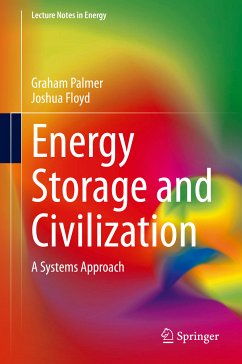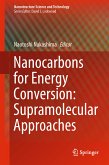Fossil fuels comprise the accumulation of prehistoric biomass that was energised by sunlight, and formed by earth system dynamics. Fossil fuels can be conceptualized as stored energy stocks that can be readily converted to power flows, on demand. A transition from a reliance on stored energy stocks, to renewable energy flows, will require a replication of energy storage by technological devices and energy conversion methods. Most analyses of energy storage focus solely on the economic-technical properties of storage within incumbent energy systems. This book broadens the scope of the study of storage by placing it within a broader, historical, biophysical framework. The role and value of storage is examined from first principles, and framed within the contemporary context of electrical grids and markets. The energy-economic cost of electrical storage may be critical to the efficacy of high penetration renewable scenarios, and understanding the costs and benefits of storage is needed for a proper assessment of storage in energy transition studies. This book provides a starting point for engineers, scientists and energy analysts for exploring the role of storage in energy transition studies, and for gaining an appreciation of the biophysical constraints of storage.
Dieser Download kann aus rechtlichen Gründen nur mit Rechnungsadresse in A, B, BG, CY, CZ, D, DK, EW, E, FIN, F, GR, HR, H, IRL, I, LT, L, LR, M, NL, PL, P, R, S, SLO, SK ausgeliefert werden.









